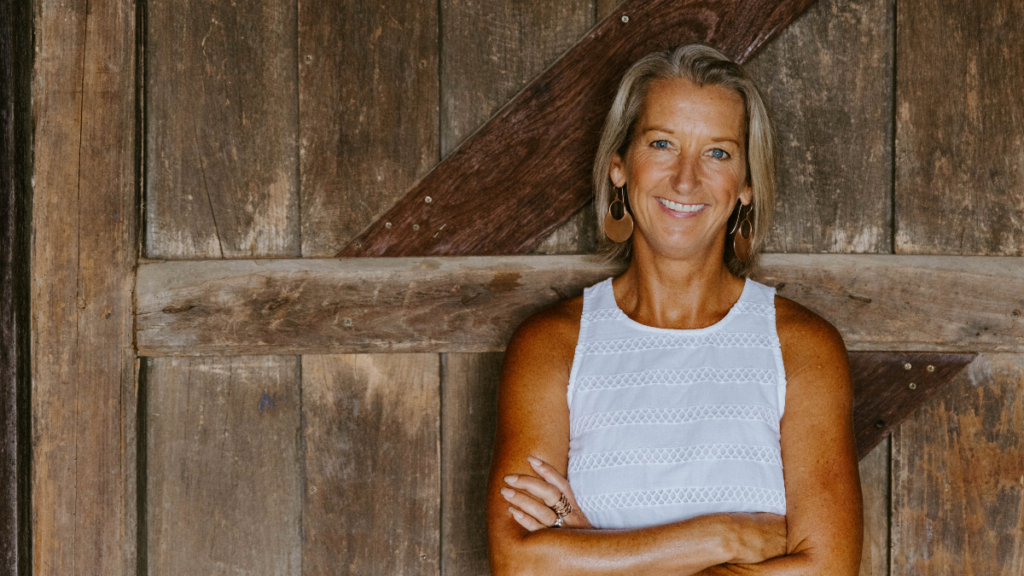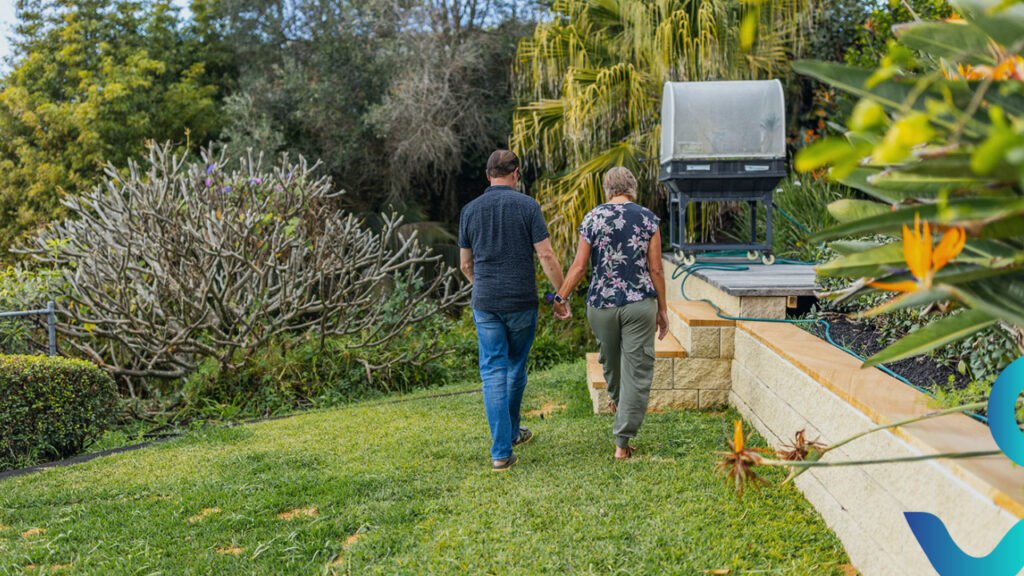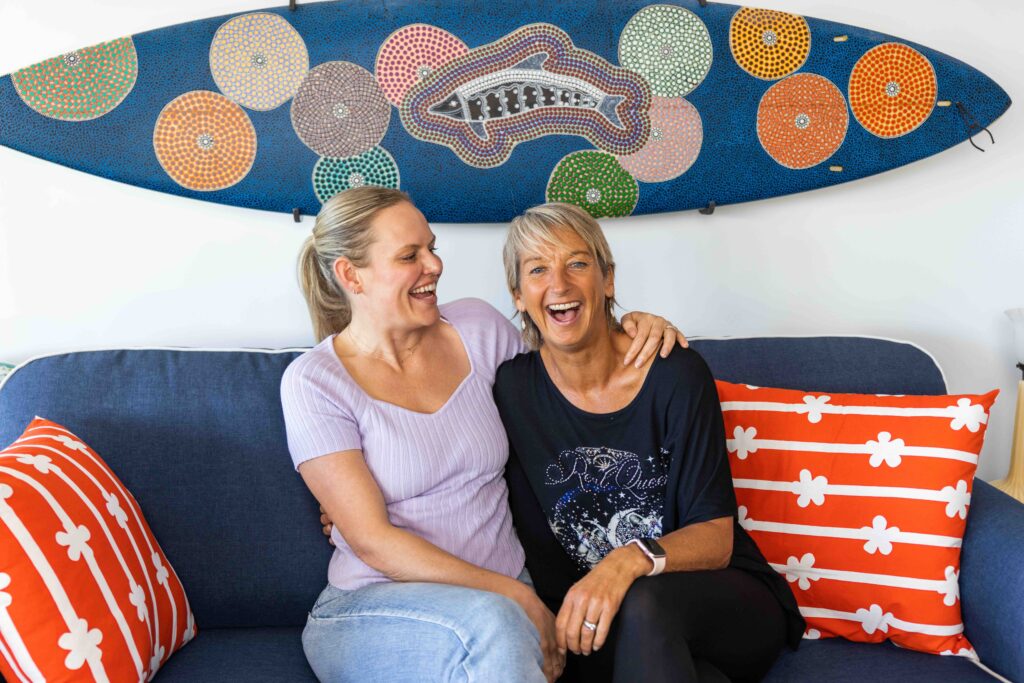
The Power of Listening on RUOK? Day
At the heart of RUOK Day is a profound yet simple gesture: listening. It’s a tool that we all possess, but often overlook in our day-to-day interactions. As an ambassador for RUOK? Day and having personally struggled with my own mental health, I truly understand the power and impact of lending a compassionate ear to someone struggling internally.
For those of us struggling or finding ourselves in a dark place, we often will want to avoid difficult conversations. For those of us concerned about a loved one or a friend, approaching a difficult conversation can be just as daunting.
Mental health is a vast, complex territory, interwoven with our physical and emotional well-being. It’s the underlying fabric of our existence, the silent driver steering our emotions, thoughts, and ultimately, our life. However, there are still challenges in navigating mental health that I’m on a mission to empower you to overcome.
Silent suffering is unnecessary
Just a few years ago, I found myself in a dark and depressed state. It was very uncomfortable.
I found myself unwilling to notice and acknowledge this fact. I wasn’t willing to look at myself.
One of the key symptoms of my darker periods (that I’ve since identified) is that, normally I’m a very social, spritely person, and during this period, I didn’t want to speak to people, I didn’t want to be seen, I didn’t want to be communicated with, I just wanted to ostracise myself.
I wanted to stay stuck in my suffering. I was numb.
I made attempts to break myself out of it – gratitude journaling, meditation, swimming in the ocean, because that’s my place of solace. But nothing broke the numbness, nothing broke the depressive state that I found myself in.
In steps Kirk, my loving husband and supporter.
One afternoon, I asked Kirk: “You know, you don’t seem to be communicating with me too much, is there anything going on in your life that you need to tell me?”
“I’m absolutely fine, but you aren’t talking much,” he replied. “Maybe it’s you that’s not Ok?”
The hammer dropped.
In that confronting moment of honesty, Kirk had placed a mirror in front of me that I wasn’t willing to look in. I will be forever grateful for that. He put the mirror up and broke my funk.
Whilst it wasn’t a comfortable conversation to experience, it was necessary. Having someone say, “Maybe it’s you that’s not okay” was the moment it shifted, where I looked at myself for a second and thought: “You’re right, I’m actually not okay.”
I acknowledged that I had to change things, because this numb feeling, this state of depression, is not normal.
We’ve come a long way as a society to accept that mental health challenges do not discriminate. We’re all different, and often many of us have so many things to be grateful for.
All too often, we rationalise our emotions by saying: “You’ve got nothing to complain about.”
To be honest, this is just a socially acceptable way of telling your emotions to “F*ck off”.
It’s not the right response.
The emotional release that Kirk allowed me to experience was profound. He listened. He did not judge or criticise. He simply allowed me to cry and express my thoughts & emotions safely.
He checked in with me every day until he felt like I was back to my normal self. If I didn’t have that level of support, I don’t know what it would have led to.
At the end of the day, there are days where you won’t feel like yourself, where you go into deep, dark places. I know I do. And that’s okay, as long as you are willing to acknowledge these feelings as a moment in time that will pass.
What is your responsibility?
It’s a common question, particularly on RUOK? day: What do you do if someone responds to you with: “No I’m not okay.”
It’s a great question.
Namely because the fear of this scenario often prevents people from having the courage to ask “are you okay?” in the first place.
In the event that someone does say they’re not okay, remember, you’re not in the position nor have the responsibility to fix it.
I’ll repeat.
You do NOT have to fix it.
The number one thing you can do in this scenario is to listen.
You’ve actually just got to be there and ask: “do you want to talk about it?”
Creating a safe space to listen to someone’s pain and suffering. Some people might simply say: “nah, I’m fine”. But if you’re comfortable and close enough, you may be able to start the conversation like my husband Kirk did: “Listen, I’ve noticed something different about you, you’re not your usual self. You just don’t seem like the same person from a couple weeks or days ago and I’d really like to know are you okay?”
Sometimes, having the courage to ask a difficult question, and to flip the mirror on someone can be a catalyst for positive change.
In the event that they do want to talk about it, let them know you are always there for them if they need someone to talk to.
If your conversation starts to lead to a place that makes you feel uncomfortable or that it’s beyond your capabilities of navigating, the RUOK website has amazing resources for support.
So, what is the takeaway on a day like today? Be prepared to listen. We’re all here to hear.
Time to listen.
LB xx





Responses